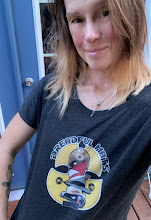Part II of the novel, Games of the Strong, focuses on language and writing. Neila has become official translator and news writer. And she eventually becomes Wils’ speech writer. And we learn the novel itself is Neila’s writing, her journal. She hides under her own bed so no one, especially the detestable Serena, will walk in and see what she is doing, no one will see her light: “I imagine the lights, written by Serena: ‘OFFICIAL COMPLEX SPEECHWRITER FOUND WRITING SUBJECTIVE LITERATURE UNDER HER BED … LITERATURE HAS BEEN BURNED … BED HAS BEEN FUMIGATED … SUBJECT JAILED’”
Neila is feeling unsure and less than capable, yet she receives promotions and additional responsibilities in the Complex that have to do with writing. Wils, her superior, the Minister of Information, former resistor or pretend resistor, current Complexer and “an enemy,” gives her increasing responsibility: “’You are liked here and it is particularly pleasing when a woman shows she can handle the responsibility of a man. It sets a good example. You are wanted to represent us at the conference.” Neila privately notes his avoidance of “active and personal” language as common in the Complex. And, instead of the Serena in her imagination, Neila is promoted to write the lights: “I have been told I am to do the news lights from now on. What excellent luck for me. The Whole complex will see my writing on the news tower.” (The personal side: my mother wrote the Times Square “zipper” news ticker in the 1960s for a bit.) Then, after intelligence and personality tests and a strange meeting with a psychiatrist, she is promoted again: “I Write position papers and speeches for Wils, and I am on my way up. I have been given a new office and a higher rank…I have a new desk and three windows to myself. ”
She thinks the Complex authorities, including Wils, are fools to trust her because she is actually against the Complex, but she also thinks she is less capable. She also kind of likes her higher rank and her new office. Though Neila does not become indoctrinated by the increased power, she remains passive except for her writing: her answers on the psychological tests, veiled resistor references in a speech and the writing of her journal itself.
Yet she becomes comfortable in Complex life during her Peninsula tour and while speechwriting for Wils. She and the older Wils even become lovers. “It has been fun and I am no longer constantly afraid, which is why I can sit here under the trees and write this in front of our little group.”
Neila’s insecurity comes out even when, or especially when, interviewing to Barm, the ex-resistor (or current resistor) and famous writer, Neila worries, “I was so afraid Barm would think me stupid that I had a list of questions prepared.” But the questions themselves are stilted, stupid, “They were dull and obtuse.” She can see the flaws in her own writing – yet she would feel unprepared for the interview, for speaking, without writing.
Through Neila and her encounter with Barm, my mother offers some thoughts on writing: Neila observes, “His language is straightforward… It gives a strength to his writing that is unique here. Most writers, who have generally come from high Complex families, strive to imitate masters from elsewhere, which gives their already stilted Complex language a peculiar deadness.”
Barm not a likable or easy fellow. He worries his wife: “I think it is Barm who makes her anxious.” And Neila thinks he is “a difficult person to be with.” But he is interesting, even inspiring: He says, “’There has always been a mysterious voice that keeps coming back and asking me, “What are you and what do you want?” That voice sets my soul in turmoil. And I am still trying to answer it.’” Neila answers, “I have that turbulence.” My mother had it. I have it. Is it a writer’s turmoil?
Neila’s interest in writing comes out in other ways: “I find I am collecting poems and stories written from the point of view of someone dead.” She remembers writing such a story herself when she was 10 years old. The first-person tale was about a boatload of shipwreck survivors whose dinghy sinks. A class “clever boy” dismisses her, “’How could they know it was quiet if they had drowned?’” And Neila is affected: “After that, I was so uncertain that I felt I had to borrow images.” (I wish I could ask my mother if this is autobiographical – I have a vague memory of her telling me this childhood story.)
In light of Neila’s childhood story, it is probably not coincidental that Part II ends with a boat ride – and a boat sinking, though we don’t learn of the sinking until Part III.


No comments:
Post a Comment